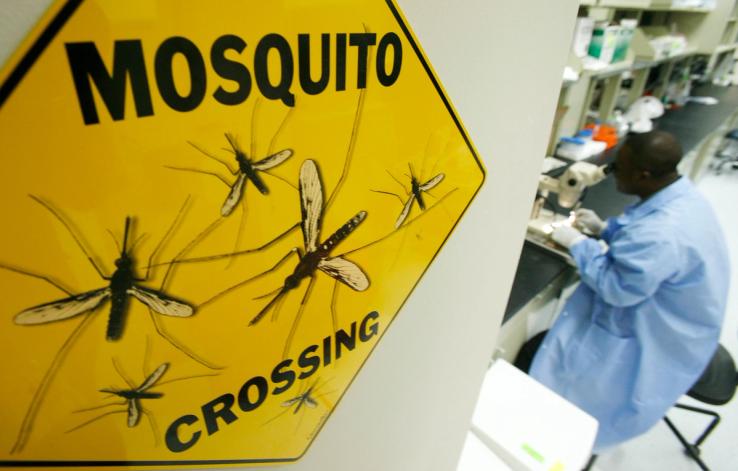The News
Medicine to treat babies and infants suffering from malaria has been approved for the first time and is expected to be rolled out in Africa within weeks.
Malaria treatment for infants weighing less than 4.5 kilograms has been unavailable until now, due to the risk of overdose. Coartem Baby, the new medicine, was produced by pharmaceutical giant Novartis and has been approved by Swissmedic, Switzerland’s regulator for therapeutic products.
Nekoye Otsyula, global medical affairs director at Novartis, told Semafor that the medicine would be most effective when adopted alongside other anti-malarial tools used by families, such as vaccines and bed nets.
She said the youngest baby involved in the two-year trial was just a day old.
Eight African countries — Burkina Faso, Côte d’Ivoire, Kenya, Malawi, Mozambique, Nigeria, Tanzania and Uganda — are expected to approve the medicine within around 90 days after studying the trial findings used by Swissmedic to reach its decision, Novartis officials told Semafor. They said Ghana has already approved the medicine.
In this article:
Know More
The World Health Organization said that In 2022, there were an estimated 35.4 million pregnancies in areas of malaria risk in Africa.
Otsyula said a lack of clinical data on numbers of babies with malaria made it hard to gauge the level of infections among the very young. And, she said, doctors and nurses have been “making do with treatments for older babies” which raises the chance of an incorrect dose.
Coartem Baby, which Novartis developed in collaboration with Swiss not-for-profit organization Medicines for Malaria Venture, is based on a medicine produced by Novartis for the last 25 years which is administered orally as a tablet dissolved in water.
Lutz Hegemann, president of global health at Novartis, told Semafor the medicine on which the new product is based had treated 1.1 billion malaria patients since 2000. He said Novartis plans to introduce the new treatment on a largely not-for-profit basis. “When there is a medical need that we can address through the science and technologies that we have, we see that as a call to action,” he said. “We saw a gap here,” he said of the age group targeted.
Step Back
Some 263 million cases of malaria were reported worldwide in 2023, with most of the 597,000 deaths occurring in Africa, according to the WHO. Children under 5 years old accounted for about three-quarters of malaria deaths in the region.
The View From Uganda
Krystal Birungi, an entomologist at the Uganda Virus Research Institute, in a recent Semafor column argued that gene drive technology could open up “a new frontier in the fight against malaria.” The technique involves introducing a genetic trait into the Anopheles mosquito, one of the main carriers of the malaria parasite. That gene is then passed down to offspring at a higher-than-normal rate, gradually reducing the population’s ability to reproduce. Over time, the mosquito population declines — potentially enough to interrupt malaria transmission altogether.
“Genetic approaches also offer some clear advantages for Africa’s unique health landscape,” she wrote. “They require less day-to-day management than current interventions, making them particularly suited for rural and hard-to-reach communities. And because they are species-specific, they offer a more environmentally targeted solution.”
Notable
- Oxford University researchers recently announced the development of “programmable microcapsules” to deliver malaria vaccines in stages, potentially removing the need for booster shots.


